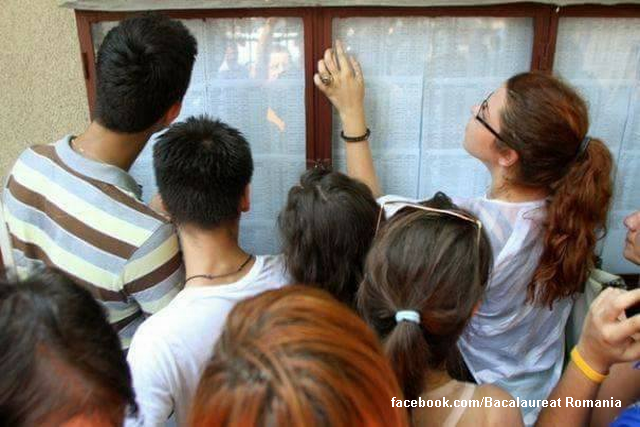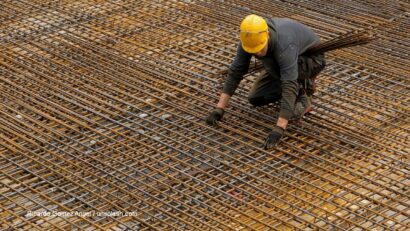New Challenges in the New School Year
A number of major changes to education legislation presented for public debate in early summer have stirred controversies, as well as fiery responses from teachers, parents, and students

Christine Leșcu, 14.09.2022, 10:50
Any side of the polemic, however, agrees with obvious facts: the drop-out rate is high, the degree of functional illiteracy among students is growing, the rate of promotion for the high school graduation exam, the baccalaureate, is way below expectations. Controversies emerge when solutions are proposed, and the ones proposed this time by the line ministry are little liked by teachers and students.
One of the changes that are proposed is related to admission into high schools. 8th graders have to take the so-called National Evaluation, which is compulsory, but now would also have to take an exam for admission into so-called national colleges. These are public high schools with a certain tradition of excellence, considered elite. This proposal for a separate exam, though supported by school representatives through the Alliance of Centennial Colleges, is not to the liking of the National Federation of Parents Associations, as we found out from its president, Iulian Cristache:
“We are the only nationally representative federation. We have established that when the Ministry of Education makes a fundamental change in the system, we should run a poll of our members, and over the last two years we have had an impressive number of responses. The latest poll regarding admission into colleges and the changes in the graduation exam, the ones proposed by the ministry in this latest bill, had over 65,000 respondents. Over 65% of parents are opposed to this proposed admission exam. Our federation agrees. Right now, these colleges, where kids get admitted with very high grades, would have the possibility of selecting among the students and form elite classes. We dont know why we need to have another exam, subjecting the children to additional pressure in a very short amount of time. They already have to pass the National Evaluation, and I suspect that in two weeks at the most they would have to take yet another very high difficulty exam, not only in the regular subjects they get tested on, but also in other subjects approved by the boards of schools.”
Another worry regarding this proposal is caused by the social and economic inequality between town and village, and between large and small cities. National colleges are customarily in large cities, and are generally the venue for kids from families with enough income to live in big cities, as well as to afford private lessons that allow their children access to these top tier school. Many teachers believe that an additional exam would deepen the chasm between thriving and disadvantaged areas. Among them is Doru Castaian, a social sciences teacher at a high school in Galati:
“As I said, to me this is an unfortunate and discriminatory measures. It is a measure that would only deepen already deep problems in the system. Also, I added the fact that it may not necessarily be too bad of a measure, if conditions would be provided for these exams to be made compulsory across the system. However, as long as only some would be permitted to have an additional exam, considering that we already have the national evaluation, I dont think this measure would have the intended effect. On the contrary, it would only make things worse.”
This new education reform bill also takes aim at the baccalaureate, or high school graduation exam. It would introduce a few new areas that would test together a few related disciplines. Social sciences teacher Doru Castaianu notes that this would mean clarifying a few terms first:
“Let us talk first about standardization, then about cramming things together. Standardization could be taken in its narrowest meaning, that of testing based on closed items, such as multiple choice, when certain subjects are unsuitable for that, such as Romanian language and literature. There has been much talk about eliminating the human factor from testing. However, you can only eliminate human error by have a standardization that allows for computer tallying. Until everyone has a clear idea of what standardization means, we will continue to express confusion and worry about pressing together all the curriculum into a single test. Fine, I understand that in the meantime they gave up on cramming in there Romanian language and literature, and having it separately. Again, I ask how this standardization would be achieved. In principle, it is impossible to have a single common test for all the competencies in the basic education module. Such a test would be very hard to design so that it would be relevant. So far, I am not aware of any guidelines to this end.”
As far as parents are concerned, this single high school graduation test would also cancel the differences between high school specializations, which kids follow throughout secondary school. Here is Iulian Cristache, the president of the National Federation of Parents Associations:
“The present system is to our liking, because if all students are tested at the same level of difficulty, we dont see the point of having specializations or affiliations in high school. I dont think its normal to have a student with a hard sciences orientation take the same test, on the same criteria, as a humanities specialized student, who has taken math that is taught differently. After discussion with the ministry, we managed to squeeze out of them the promise that Romanian as a test subject will be tested as a stand alone discipline.”
Public debates on this bill concluded in late August. The Ministry of Education has the option of changing the bill based on public proposals, before sending it to be voted on in Parliament.






























